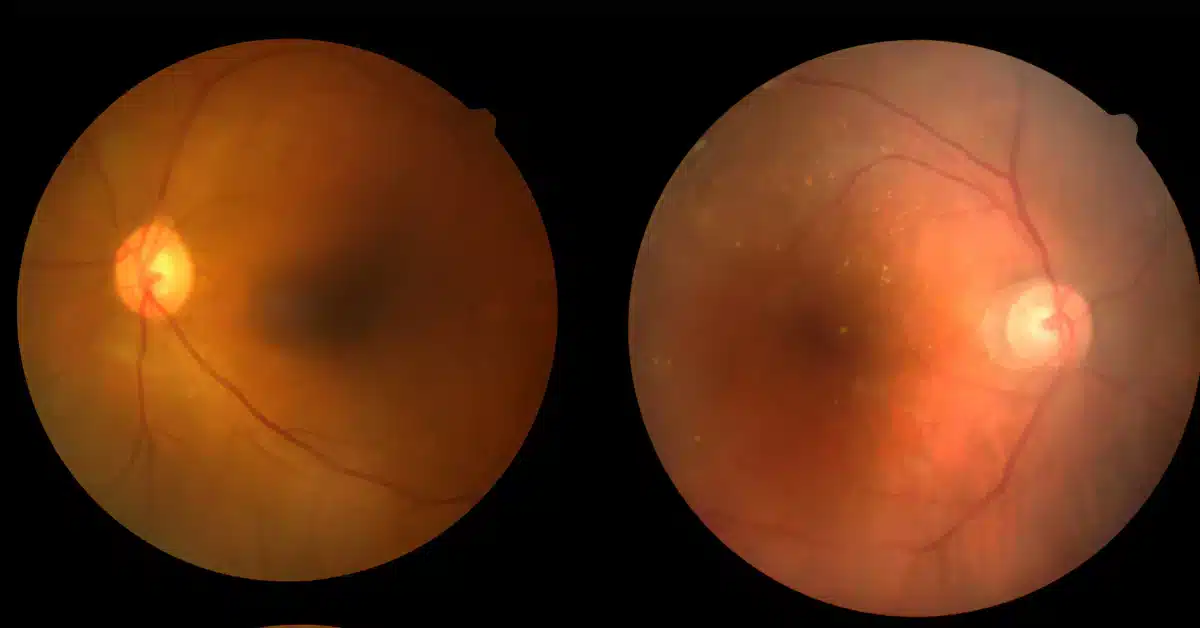Diabetic Retinopathy Symptoms: Know the Signs
Diabetic Retinopathy (DR) is an eye condition that can lead to vision loss and blindness in people with Diabetes.
It affects the blood vessels in the retina. It is the light-sensitive layer of tissue in the back of your eye.
There are two stages of DR non-proliferative and proliferative Retinopathy.
Diabetic Retinopathy may not present symptoms initially, but detecting it can help protect your vision.
If you have Diabetes, you should have a thorough dilated eye exam at least once a year.
Managing Diabetes may help prevent or delay vision loss. It is necessary to stay active, eat healthily, and take medication.
Continue reading to learn more about Diabetic Retinopathy signs and symptoms.
Signs and symptoms of Diabetic Retinopathy
During the early stages of diabetic Retinopathy, there are usually no symptoms. When the condition is more advanced, symptoms appear.
The condition can cause permanent blindness if not diagnosed and treated.
Diabetes retinopathy usually affects both eyes. This condition’s signs and symptoms may include
Blurry vision

Blurry vision makes it harder for a person to see finer details.
Your vision can lack sharpness, like the out-of-focus part of a photograph.
Diabetic Retinopathy can cause the retinal blood vessels to leak blood and fluid into the retina.
As a result, it causes blurred vision and can lead to vision loss.
Impaired color vision
Diabetic Retinopathy symptoms include abnormalities in color vision.
According to a study with more than 2000 patients, approximately 50% with DR had abnormal hue discrimination.
Another study concluded that nearly 65% of the participants with DR had impaired color vision.
Eye floaters
Eye floaters are spots in your vision. They may appear as black or gray specks, strings, or cobwebs to you.
When you move your eyes, they may move around. When you try to look at floaters, they appear to dart away.
If you notice a sudden increase in eye floaters, contact an eye specialist immediately, as it is a symptom of DR.
Poor night vision
Diabetes increases the risk of night vision problems by damaging the blood vessels and nerves, resulting in Diabetic Retinopathy.

Check with your doctor if you have difficulty seeing at night, as it can affect your everyday life.
Not only can it impair night vision, but it may also take longer to adjust to normal vision after coming inside from the bright light outside.
Spots in your vision
DR can cause swelling in the macula region of the eye.
When there is a fluid leakage in the damaged blood vessels in the macula, it can lead to the formation of spots in your vision.
These spots often come with distortion and blurry vision.
Blocked central vision
Macula is part of the retina responsible for clear central vision.
Due to DR, the blood vessels get damaged, resulting in fluid leakage into the macula, causing blocked central vision.
Sudden and total loss of vision
Diabetes Retinopathy develops when high blood sugar levels damage blood vessels in the retina.
These damaged vessels can swell and leak, causing blurry vision or stopping blood flow.
New blood vessels form from time to time but are abnormal and can cause further vision problems.
Untreated Retinopathy can lead to progressive and irreversible vision loss. This condition is the leading cause of blindness in people between the ages of 20 and 60.Â
But an early diagnosis of Retinopathy can help prevent blindness.
Conclusion
Diabetic Retinopathy can result in abnormal vision and blindness in people with Diabetes.
During the early stages, there are usually no symptoms. When DR is more advanced, symptoms typically appear and can be severe.
You may experience symptoms such as blurry vision, Impaired color vision, and eye floaters.
It can also affect your night vision. Some people may even have spots or blocked central vision. If not treated on time, these symptoms can also lead to complete blindness.
Screening can detect problems in your eyes before they start to affect your vision.
If caught early, treatment can help prevent or reduce vision.
Your doctor may prescribe some more medications with your existing Diabetes medicine.
Frequently Asked Questions
What is the first sign of Diabetic Retinopathy?
The initial stages of diabetic Retinopathy don’t have any symptoms. Some people can notice changes in their vision, like poor night vision and blurry and impaired color vision.
What is the best way to detect Diabetic Retinopathy?
Diabetic Retinopathy is diagnosed with a comprehensive dilated eye exam. For this exam, drops in your eyes widen your pupils to allow your doctor a better view of your eyes.
What is vision like with Diabetic Retinopathy?
Diabetes Retinopathy develops when high blood sugar levels damage blood vessels in the retina. These damaged vessels can swell and leak, causing blurry vision or stopping blood flow.
WowRx uses only high-quality sources while writing our articles. Please read our content information policy to know more about how we keep our content reliable and trustworthy.






